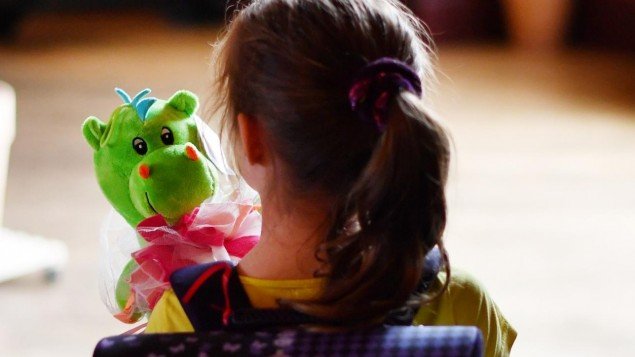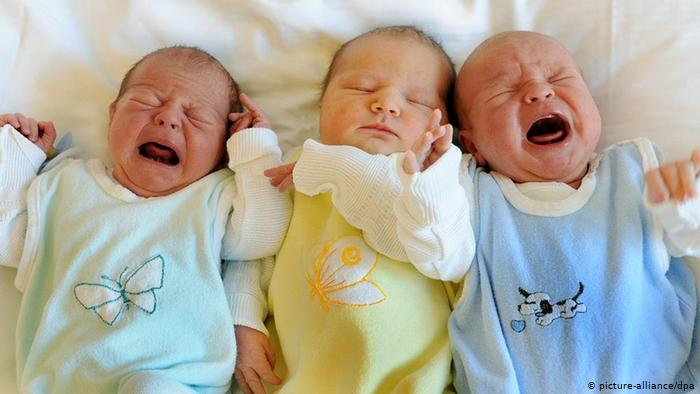Not only the economy in Germany is growing. Child poverty is also increasing. The comes from a new study. A wrong family policy is also to blame.

What does it take for a good, even happy childhood? Unlike in many other countries in the world, luckily Germany does not lack the survival essential. Something to eat, a roof over your head, winter clothes, medication, free School attendance – these basic needs are a matter of course here.
But also in Germany, an increasing number of children are growing up, who – compared to the general living conditions – are considered poor. This is the result of a recent study published by the Bertelsmann Foundation. It says: Almost two million poor children live today in Germany – more than five years ago. Children are deemed poor if their parents are unemployed and therefore rely on state security, the so-called "Hartz IV amount", are instructed. The data come from statistics from the Federal Employment Agency and a long-term study on the consequences of poverty for children and adolescents.
No own room, no healthy teeth
But what does that mean "child poverty" in one of the richest countries in the world? "The affected children have to do without a lot", Anette Stein sums it up in conversation with DW. She is an expert on family policy at the Bertelsmann Foundation.

Social participation – poor children are more often isolated
The waiver begins with living: poor children often do not have their own room – and therefore no retreat for schoolwork, for example. They eat worse because instead of fruits and vegetables, fast food is served more often. Among other things, they are often sick. In addition, children from poor parents’ homes are more common "socially isolated", as the study says. For example, there is a lack of money for school trips, sports clubs or music lessons.
All of this has a negative impact on educational opportunities. "Your entire educational biography is much more problematic than with children who live in a secure income", said family policy expert Stein.
Once poor, always poor – this equation is not necessarily true. Of course, many low-income parents also support their children as best they can. But poverty often solidifies. "The longer children live in poverty, the higher the risk that this will have a negative impact on their fate", says Anette Stein. Children from Hartz IV households at universities are still rather the exception.

Food is often missing in the school bags of poor children. Higher degrees are also rarely achieved
The study shows that daughters and sons of single parents and children who grow up with two or more siblings are particularly affected. It also seems to matter where you grow up. In general, the following applies: In rich southern Germany, the risk of poverty is significantly lower than in less developed areas such as North Rhine-Westphalia.
Another result: Around every fifth child in East Germany grows up in poverty. Berlin is the sad leader. Almost every third child in the capital is considered poor. Children who grow up in Bavaria or Baden-Württemberg have a much better start in life: Not even every tenth child is affected by poverty here.
"A policy that thinks from the child"
Anette Stein from the Bertelsmann Foundation sees the state in duty. There is a lot of talk about family policy, and a lot is being done: "But obviously none of this works", so stone. The main problem is the calculation of social assistance rates. So far, the Hartz IV rates that apply to unemployed adults have been counted down to children.
"But children are not small adults", criticizes Stein. The financial support had to be tailored to the needs of children. This means that children also need access to cultural institutions and various educational offers – the daycare center and school alone are not enough, according to the expert. Your claim: "We need a policy that thinks from the child."

Basic security – poor children receive far too little money, criticize social organizations
The fact that child poverty is rising in a rich country like Germany is fundamentally not new. However, the Bertelsmann study makes it clear that all government measures have so far failed. The current poverty report of various social organizations in Germany comes to a similar conclusion. On "Child benefit based on needs, which ensures livelihood" is also demanded in it.
What constitutes a happy childhood – that cannot be measured by the parents’ wallet. But the sum of the waivers – no organic food, no football club, no piano lessons, no tutoring, no family vacation, no stays abroad – makes a difference.
According to the criticism of the President of the German Children’s Fund, Thomas Krüger, the latest proposal by the Federal Minister of Finance is unlikely to make any difference: Wolfgang Schäuble would like to increase child benefit by two euros per child per month.
The editors recommend
Child poverty despite minimum wages
The introduction of the minimum wage has not significantly reduced child poverty in Germany. The number of minors in so-called "spiking"-Households remained practically constant. (08.31.2016)
Every seventh child relies on Hartz IV
Bad news for International Children’s Day: 1.54 million children in Germany depend on Hartz IV benefits. In Berlin and Bremen, the situation of those under the age of 15 is even worse. (05.31.2016)
Economist Stefan Sell: Fighting child poverty pays off
Your parents, your fate? In Germany, the parental home very much shapes the educational opportunities and future of the children. Economist Stefan Sell warns of short-sighted politics, which saves in the wrong place. (05.31.2016)
Rich countries, unequal opportunities
A new UNICEF report calls for a fair chance for all children. Because even in rich countries, children grow up with very different opportunities. The influx of thousands of refugee children increases the pressure to act. (04.14.2016)
RELATED ITEMS
-

Society – what to do about child poverty in Germany? (Archive)
Guests: Claudia Held, child protection officer of the Berlin city mission and economist Stefan Sell, Koblenz University of Applied Sciences. Poor children often become poor…
-

Study: children are at risk of poverty in Germany, currently Germany, dw
Bochum researchers calculate a significantly higher risk of poverty for single parents and families than in previous studies. The basis is a new method,…
-

Child poverty: what poor children have to do without
Child poverty What poor children have to do without Little space, little leisure activities: Poor children have to do without a lot. 2446000. That is the…
-

Paradies Deutschland – for fraudsters, criminals and proud africans, crisis-free
By Hubert von Brunn (anderwelt) Germany is a beautiful country, a wonderful country. No, it doesn’t. It is paradise and when I am…
